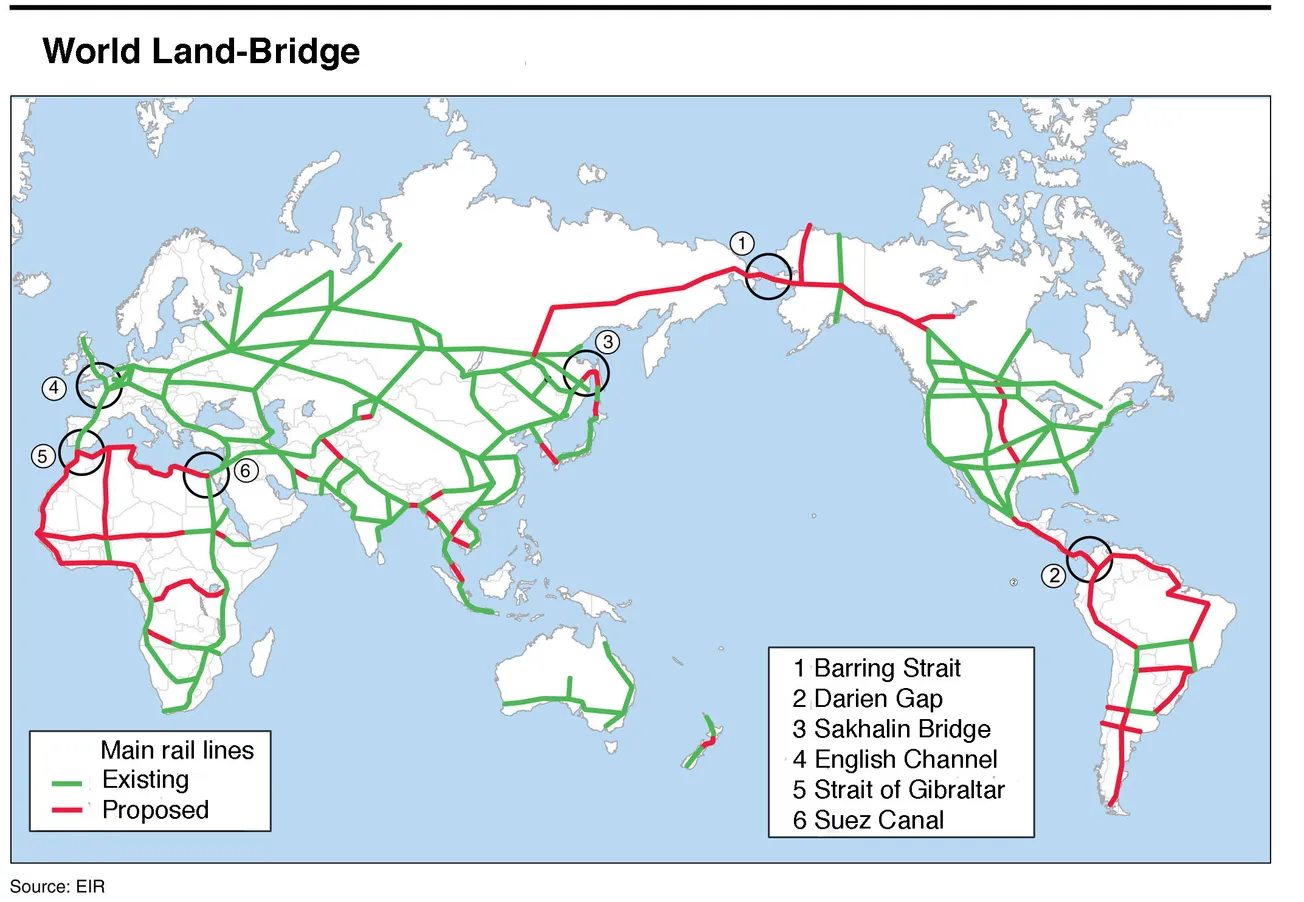The Anglo-American empire, in efforts to continue to exert outsized control over world affairs, has adopted the geopolitical outlook of preventing cooperative development among nations, especially in Eurasia. This is the context for the intended explosion of the Israel-Gaza conflict into a broader regional war, to target the expansion of the BRICS process and the potential for regional integration in the mode of the LaRouche movement-proposed World Land-Bridge.
The Anglo-American NATO war against Russia being conducted largely on the territory of Ukraine has, of course, not succeeded, something that even the legacy media have finally figured out. Sanctions have not had their supposedly intended effect, either of changing Russian policy or in dealing severe damage to its economy.
Efforts to win economic and political warfare against China are falling flat. Human rights organizations are discrediting themselves with exaggerated claims about Xinjiang, burning up the political capital of their legitimacy by acting in service of political ends, rather than anything like a universal principle. The economic warfare against China is disastrous for those engaging in it. But it has provided the impetus for China to make significant advances in high-technology: both in manufacturing and in capabilities for research and development.
In Southwest Asia, the United States has committed two aircraft carrier groups and one very public nuclear-powered submarine to the region. These massed forces are not about protecting Israel from Hamas in Gaza—they are about targeting the region as a whole, particularly Iran and Syria.
Israel’s brutal mass murder of Gazans has brought it international opprobrium, causing what would be long-lasting damage to its reputation and legitimacy. An outpouring of outrage from around the world—with particular mention of the BRICS, the OIC/Arab League, the UN General Assembly, from U.S. city councils and members of Congress, and from Israelis themselves—has forced an agreement for a temporary truce in the fighting, to be accompanied by mutual release of hostages.
But this is not enough.
At the Nov. 21 online BRICS meeting, President of China Xi Jinping expressed his view on the matter: “There can be no security in the Middle East without a just solution to the question of Palestine. I have emphasized on many occasions that the only viable way to break the cycle of Palestinian-Israeli conflict lies in a two-state solution, in the restoration of the legitimate national rights of Palestine, and in the establishment of an independent state of Palestine.”
Could an international conference on precisely that theme become the venue for a new paradigm of peace through development for the world’s hot spots? Can the full spectrum of security—security from hunger, from poverty, from disease, from warfare—be taken up as an international responsibility, ushering in a new paradigm of international relations and burying geopolitics forever?
Let us make it so, and give the present and future something to be truly thankful for.







